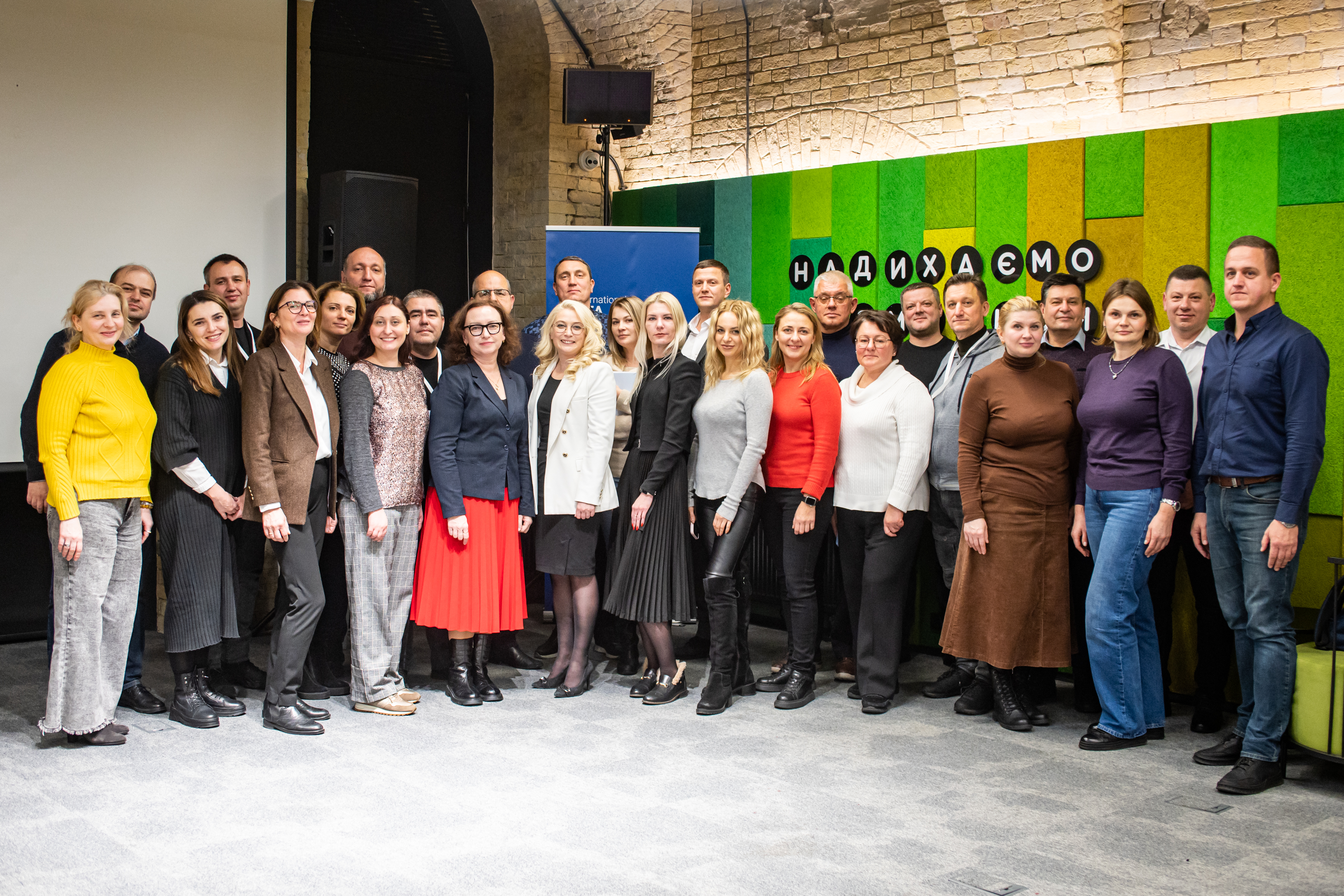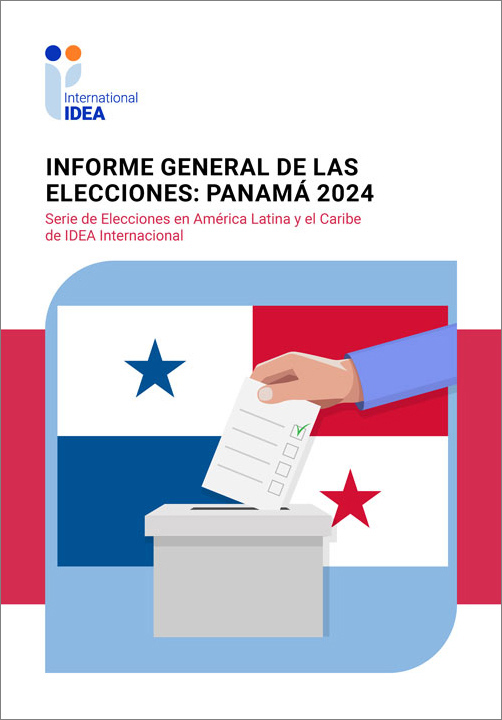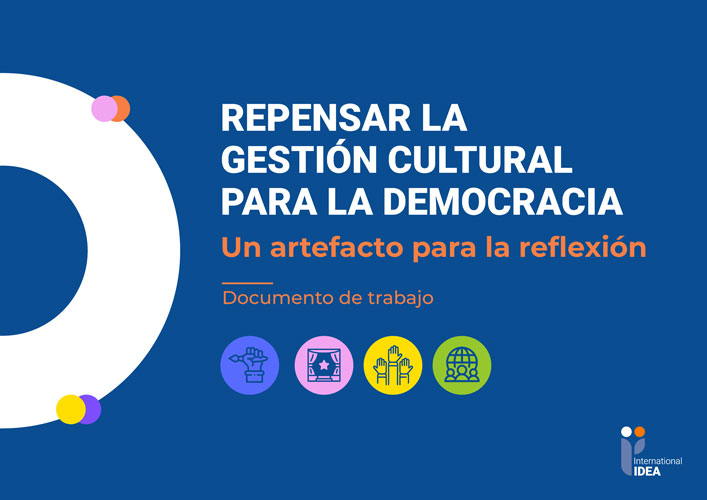This publication draws on the November 2004 Forum of Latin American Women Political Leaders. The book covers subjects like the concept of power, political party financing and the media’s role and impact on politics.
Search
Region
Country
Type
The process of building democracy in complex transitions is a daunting but necessary task.
The design of political, institutional and legal systems can play a critical role in ensuring the sustainability and the advancement of democratic systems, by providing adequate mechanisms to manage conflicts within limits of peaceful coexistence and by promoting consensus around a set of core principles.
The Declaration of Principles for International Election Observation and the Code of Conduct for International Election Observers establish the basis for credible international election observation.
Internal pressures and advocacy for change have raised awareness and precipitated debates about the nature and need for reform processes in many Arab countries.
Such debates have drawn in a diverse range of groups articulating interests and defining their own political programmes. In this context, electoral processes, women's participation and political parties have emerged as central issues in political reform agendas in the Arab world.
This report examines women’s political representation in Europe.
Although the overall representation of women in European Parliaments (including the members of the Commonwealth of Independent States) stands at approximately 18 percent, the differences among the many countries are staggering; from a low of three percent in Kyrgyzstan to a high of 45 percent in Sweden.
This 2005 edition of Women in Parliament: Beyond Numbers covers women’s access to the legislature in three steps.
Basándose en la experiencia de 5 países (Argentina, Chile, El Salvador, Guatemala y Perú) este publicación presenta los desafíos de la reconciliación en el contexto de procesos de democratización.
Partiendo de una perspectiva en la que no existe una solución única para el reto de la conciliación, este libro expone opciones existentes y sus consecuencias con el objetivo de brindar insumos para futuros procesos.
Se presentan ponencias sobre la situación de los partidos políticos en la Región Andina, específicamente en Bolivia, Colombia, Ecuador, Perú y Venezuela.
This report examines women’s political representation on the African continent, and shows how quotas have contributed to increasing women’s access to political power.
Collaboration between the World Bank, the United Nations Economic Commission for Latin America and the Caribbean, and International IDEA goes back to November 2000. It includes roundtables on national dialogue, country development strategies, and middle-income countries’ development experience, with a focus on Latin America.
These essays tell the story of elections that took place in 2003 in the three countries of the South Caucasus, Armenia, Azerbaijan and Georgia, seen through the eyes of nine regional participants and commentators.
The authors therefore write with the immediacy and the vibrancy that comes with close engagement, and sometimes take strong judgments based on their individual standpoints as the processes unfolded.
This report contains the findings and recommendations that emerged from the comprehensive evaluations of democracy at the local level in four cities in East and Southern Africa.
This regional report on voter turnout is based on the IDEA Voter Turnout Database, which contains statistics from 170 countries for parliamentary and presidential elections since 1945 and is continually updated.
Increasing women’s representation and participation in decision-making bodies requires well-developed strategies and information about which measures have worked successfully in different countries with different political systems.
This Guide is designed to offer insights into the critical elements that shape systems of good local governance in the South Caucasus region.
It also serves as a tool for local decision-makers and practitioners as they seek to learn more about models and practices of local democracy, particularly from an international comparative perspective.
How does a newly democratized nation constructively address the past to move from a divided history to a shared future?
How do people rebuild coexistence after violence?
This Handbook presents a range of tools that can be, and have been, employed in the design and implementation of reconciliation processes. Most of them draw on the experience of people grappling with the problems of past violence and injustice.
This report is the first in a series of reports on regional experiences with quota implementation.
It provides information about the use of gender quotas as an instrument to increase women’s political representation in Asia, and to show that they can and are being applied successfully. The report includes case studies from India, East Timor, Pakistan, Bangladesh and Indonesia.
What constitutes a fair electoral system and a fair election? What are the guiding principles for reviewing electoral legislation?
This document sets out the basic legal components governing elections for the purpose of reviewing, drafting or amending electoral legislation. It aims to contribute to promoting uniformity, reliability, consistency, accuracy as well as professionalism in elections.
This study from 2002 was one of the first to use International IDEA’s State of Democracy Assessment Framework.
The Framework is different from other methodologies because its assessments are led and owned by local actors, and move away from the practice of ranking democratic performance and making external judgements.
This Handbook, originally published in 2002 and now out of print, is a robust guide to assessing the quality of democracy and human rights. It introduces an easy-to-use and universal methodology for assessing the condition of democracy in any country, or its progress in democratization.


